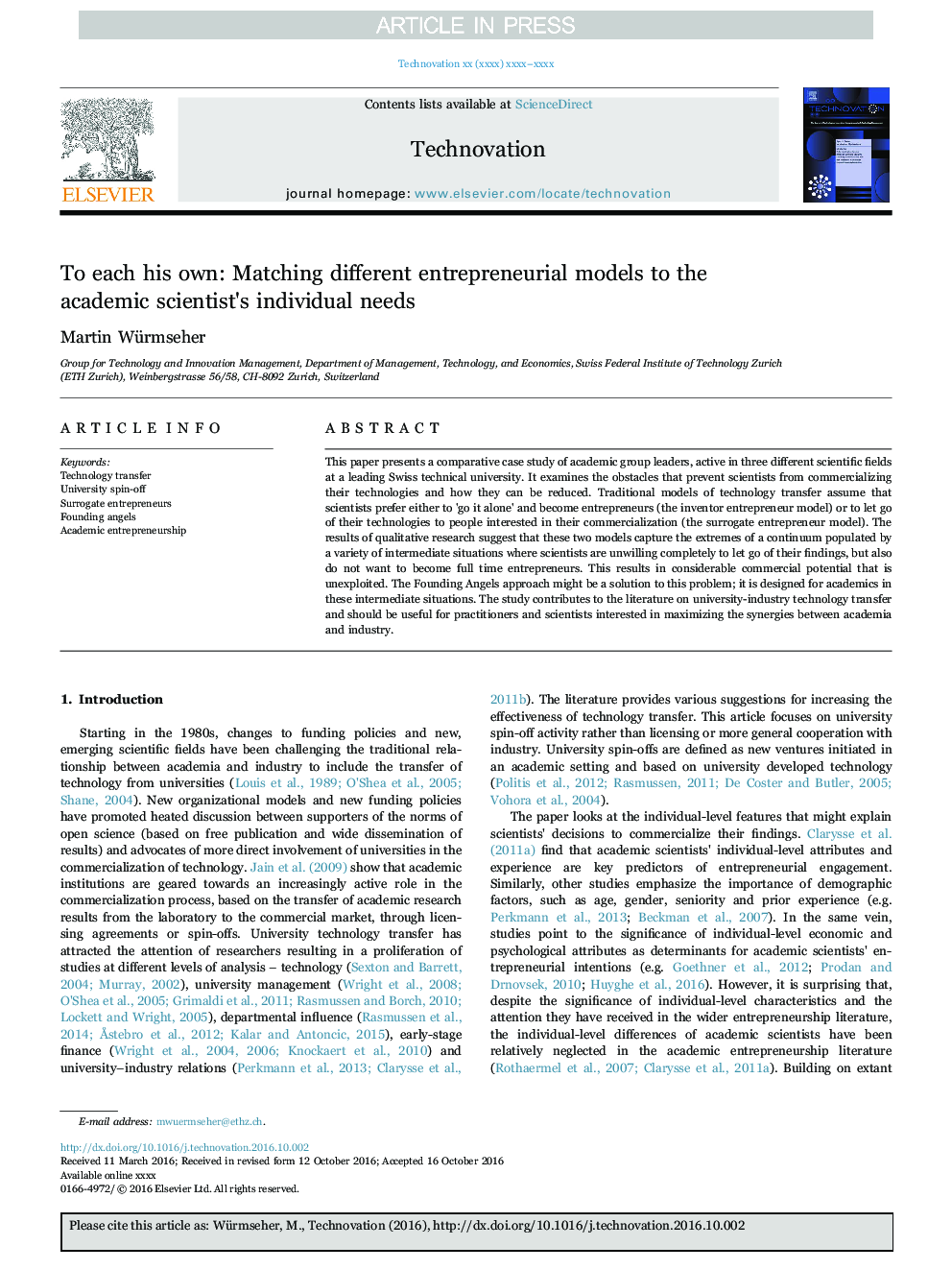| Article ID | Journal | Published Year | Pages | File Type |
|---|---|---|---|---|
| 5110351 | Technovation | 2017 | 17 Pages |
Abstract
This paper presents a comparative case study of academic group leaders, active in three different scientific fields at a leading Swiss technical university. It examines the obstacles that prevent scientists from commercializing their technologies and how they can be reduced. Traditional models of technology transfer assume that scientists prefer either to 'go it alone' and become entrepreneurs (the inventor entrepreneur model) or to let go of their technologies to people interested in their commercialization (the surrogate entrepreneur model). The results of qualitative research suggest that these two models capture the extremes of a continuum populated by a variety of intermediate situations where scientists are unwilling completely to let go of their findings, but also do not want to become full time entrepreneurs. This results in considerable commercial potential that is unexploited. The Founding Angels approach might be a solution to this problem; it is designed for academics in these intermediate situations. The study contributes to the literature on university-industry technology transfer and should be useful for practitioners and scientists interested in maximizing the synergies between academia and industry.
Related Topics
Social Sciences and Humanities
Business, Management and Accounting
Business and International Management
Authors
Martin Würmseher,
